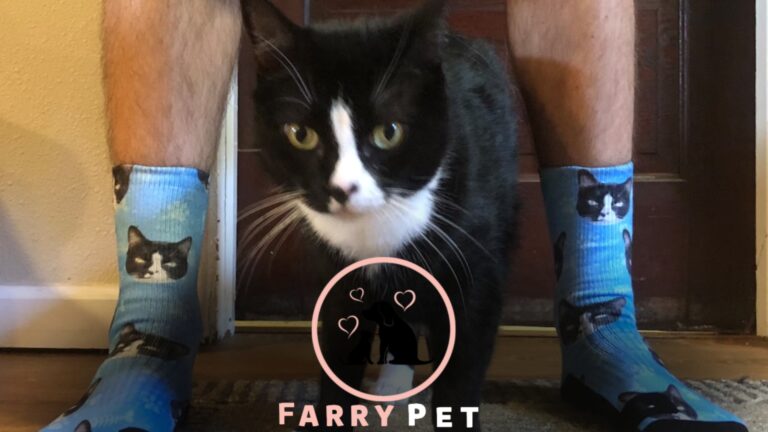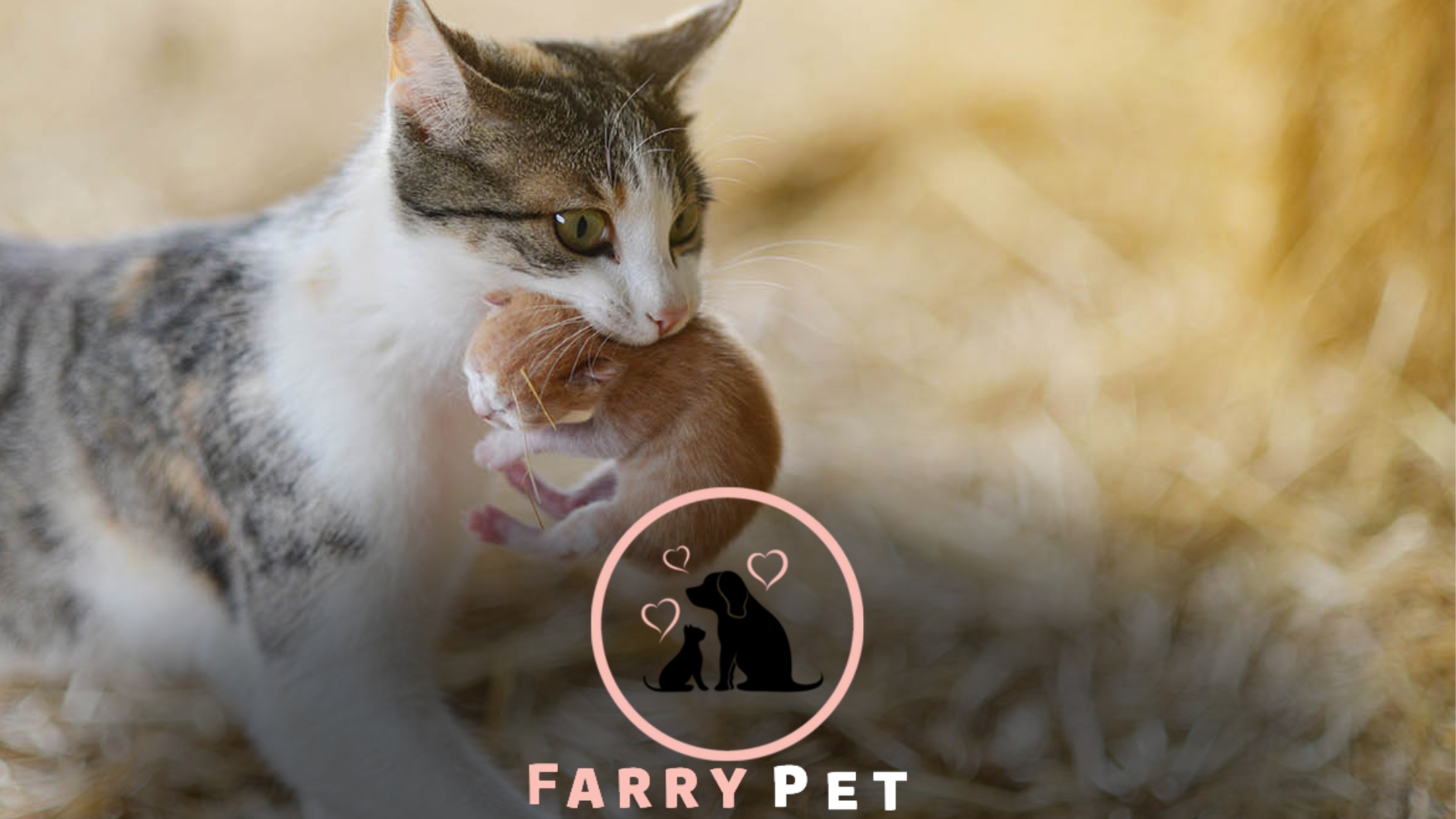
Discover the reasons behind your cat’s surprising behavior as we delve into why cats may bite their newborn kittens’ heads. Learn about potential causes and helpful tips for managing this situation.
Your cat may be biting her newborn kitten’s head due to instinctual grooming behaviors or to establish dominance within the litter. This behavior is common among mother cats and usually does not cause harm to the kittens.
However, if the biting becomes excessive or aggressive, it is important to monitor the situation and intervene to protect the kittens.
Why is My Cat Biting Her Newborn Kitten’s Head?
Understanding the Behavior
Understanding why a mother cat may bite her newborn kitten’s head requires an understanding of feline behavior. Mother cats have natural tendencies that may include occasional acts of aggression.
This behavior can stem from various reasons, including protecting the litter from potential threats or sending a message to the kitten.
It’s important to remember that maternal aggression toward kittens is an instinct, not necessarily indicative of the mother cat’s dislike for her offspring.
Being aware of these possible reasons for maternal aggression can help cat owners intervene appropriately and ensure the safety and well-being of the kittens.
Understanding feline behavior can create a safer environment for the mother cat and her kittens.
While addressing the unique behavior of a mother cat with her newborn kittens, it’s essential to consider various aspects of kitten care. One question often arises: ‘Can kittens be alone at night?
Environmental Factors
The environment is crucial in a cat’s behavior, especially regarding new kittens. Mother cats experience stress and anxiety triggers, which can cause them to bite their newborn kitten’s head.
To prevent this, it’s important to create a safe and calm environment for the mother and her kittens.
This can be done by providing them with a quiet and secluded space away from potential disruptions. Additionally, ensuring that the temperature is comfortable and the area is well-ventilated is important for their overall well-being.
Providing a cozy and warm nesting area with soft bedding can also help create a sense of security for the mother and her kittens.
Moreover, minimizing environmental changes or disturbances during this period can help reduce stress.
By understanding the impact of the environment on cat behavior, we can take the necessary steps to ensure the safety and well-being of the mother and her newborn kittens.
Medical Causes
Maternal aggression in cats may be attributed to potential underlying medical issues, including hormonal imbalances that impact their behavior.
These imbalances can lead to protective behaviors such as biting the newborn kitten’s head. If you notice this behavior in your cat, it is crucial to consult a veterinarian for a proper diagnosis and treatment plan.
They will be able to identify any medical conditions or hormonal issues contributing to the aggression. Addressing the medical cause can help ensure the mother cat’s and her kittens’ well-being.
Remember to seek professional advice to ease concerns about your cat’s behavior during this delicate period.
Socialization and Handling Techniques
Socializing mother cats and their kittens is crucial for their development and behavior. Gradual introductions to external stimuli, such as different sounds and smells, help them adapt to the outside world.
This process prevents them from becoming overly fearful or aggressive when encountering new situations.
Additionally, gentle handling techniques play a vital role in preventing aggression. We teach them that humans are not a threat by caring for the kittens and ensuring positive experiences.
This helps create trust between the kittens and their human caregivers, making them more pleasant and friendly.
Taking the time to socialize mother cats and their newborn kittens sets a solid foundation for their future interactions and ensures their emotional well-being.
Understanding your cat’s behavior towards her kittens is crucial, prompting questions about kitten care and health.
We’ll not only explain why a cat might bite her newborn kitten’s head but also discuss the topic of ‘why are my cats peeling paws‘, ensuring you have all the information you need to provide the best care for your feline family.”
Corrective Measures
Cats biting their newborn kitten’s heads can be alarming, but there are corrective measures you can take. Redirecting negative behaviors is crucial to ensure the mother cat’s and her kittens’ well-being.
Intervention strategies for maternal aggression involve creating a safe and stress-free environment for the mother cat.
Techniques for fostering maternal bonding include providing ample food and water and engaging in interactive play.
Additionally, ensuring that the mother cat has her own space for privacy can help alleviate any potential aggression. It’s important to monitor the behavior closely and seek professional guidance if needed.
Creating a harmonious environment will ultimately aid in establishing a healthy relationship between the mother cat and her newborn kittens.
Seeking Professional Assistance
If you notice your cat biting her newborn kitten’s head, it may be time to seek professional assistance. One option is consulting with an experienced cat behaviorist or veterinarian who can analyze the situation.
They can provide valuable insights into why the mother cat is displaying this aggression towards her kittens.
In some cases, maternal aggression can be a normal part of the cat’s behavior, but it’s important to recognize when it becomes excessive or potentially harmful.
Collaborating with experts can help address the issue and ensure the kittens’ safety.
Taking proactive steps and seeking professional help is crucial to creating a safe and nurturing environment for the mother cat and her newborn kittens.
In this article, we explore the reasons behind a mother cat’s behavior towards her kittens, including biting their heads, and we also delve into related concerns.
We’ll provide insights into ‘Kitten’s first night home,’ offering a comprehensive guide for kitten owners.
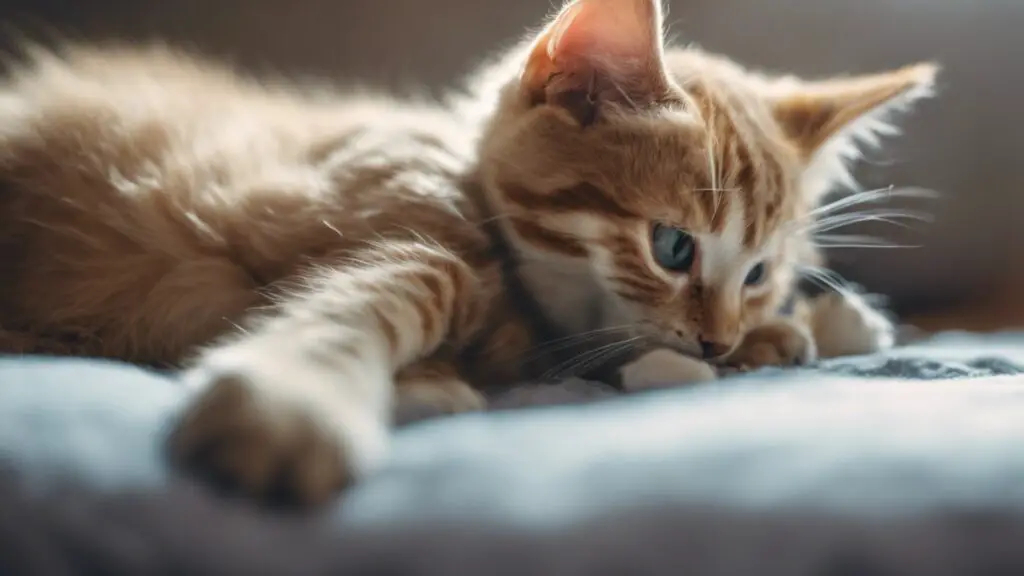
Frequently Asked Questions
Why Do Cats Eat the Head of Their Kittens?
Cats may eat the heads of their kittens in rare cases. It is a behavior known as cannibalism and can happen for several reasons. One reason is that the mother cat may sense that the kitten is unhealthy or weak and decide to kill and eat it.
This may seem cruel, but nature ensures the survival of the stronger and healthier members of the litter. Another reason could be stress or anxiety in the mother cat, leading to abnormal behavior.
Cannibalism can also occur when there is a lack of food or resources, and the mother cat may eat her kittens to survive.
It is important to note that this behavior is not typical for domestic cats and usually occurs in extreme situations. If you notice this behavior in your cat, it is advisable to seek veterinary assistance to identify and address the underlying cause.
Why is My Cat Eating a Newborn Kitten?
Cats may eat newborn kittens due to stress, health issues, or instinctual behavior.
Why is My Cat Biting a Kittens Neck?
Cats biting a kitten’s neck is a natural behavior for several reasons. It’s a way for adult cats to establish dominance and show authority. This behavior mimics how mothers carry their kittens by the scruff of their necks.
Adult cats are teaching the kittens boundaries and discipline by biting their neck.
It’s also a way to initiate play and interaction. However, it is important to monitor the situation because excessive biting can harm the kitten.
If the biting becomes too aggressive or the kitten shows signs of distress, it’s best to intervene and separate them.
Gradual introduction and supervised playtime can help the cats develop a harmonious relationship.
Is It Normal for a Mother Cat to Be Rough With Her Kittens?
Yes, it is normal for a mother cat to be rough with her kittens. Mother cats use rough behavior, such as biting or swatting, to teach their kittens important lessons.
This behavior teaches the kittens boundaries and helps them learn to protect themselves in the future.
While it may seem harsh, it is a natural part of a cat’s upbringing. As the kittens grow, the mother cat gradually decreases this rough behavior, allowing them more independence.
It is important to remember that a mother cat is always looking out for the best interests of her kittens.
If you have any concerns about the mother cat’s behavior, it is best to consult with a veterinarian or a professional cat behaviorist for guidance.
Why is My Cat Biting Her Newborn Kitten’s Head?
Cats may bite their newborn kittens’ heads for grooming, scent recognition, or disciplinary reasons. It’s normal behavior, but monitor for excessive aggression.
Conclusion: Why is My Cat Biting Her Newborn Kitten’s Head?
Observing a mother cat biting her newborn kitten’s head can be distressing for any pet owner. However, it’s crucial to understand that this behavior is an instinct for the mother cat.
She simulates grooming to support blood circulation and stimulate the kitten’s bodily functions.
Additionally, this behavior helps the mother cat establish dominance and keep her litter in check. While it may seem aggressive or alarming, it is generally not harmful to the kitten.
Nevertheless, if the mother’s biting becomes excessive or aggressive, it is important to intervene and separate the mother from the kitten temporarily. Consulting with a veterinarian or animal behaviorist can provide valuable insights and guidance.
Remember, understanding the instinctual behaviors of cats can help foster a healthy and safe environment for both mother and kitten. You can ensure a harmonious relationship between the mother cat and her newborns by providing proper support and care.

![Can Cats Eat Graham Crackers? [Let’s Know in Detail]](https://farrypet.com/wp-content/uploads/2023/08/Can-Cats-Eat-Graham-Crackers-1-768x432.jpg)
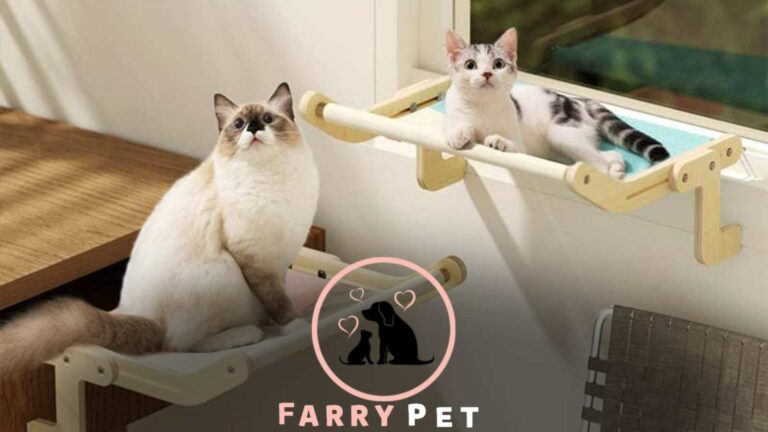
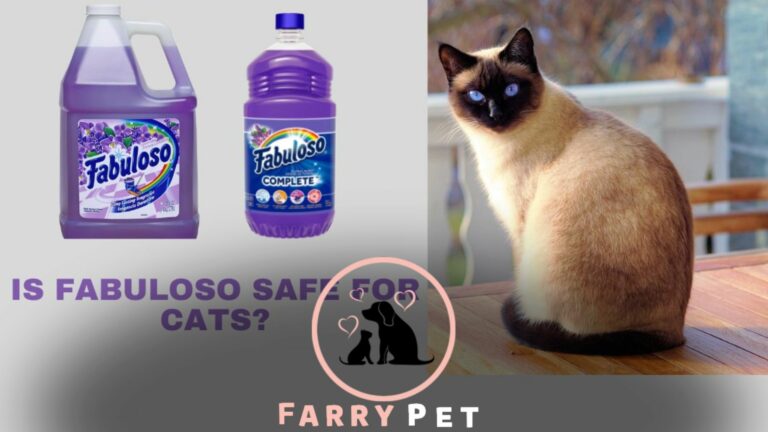
![Are Heated Blankets Safe for Cats? [Keep your Feline Friend Cozy and Secure]](https://farrypet.com/wp-content/uploads/2023/09/Are-Heated-Blankets-Safe-for-Cats-2-768x432.jpg)
